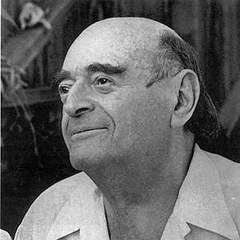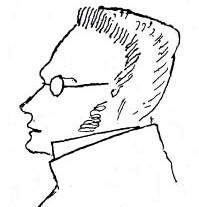Charles Sanders Peirce Quotes
Every man is fully satisfied that there is such a thing as truth, or he would not ask any question.
Charles Sanders Peirce, Nathan Houser (1998). “The Essential Peirce: Selected Philosophical Writings”, p.240, Indiana University Press
The entire universe is perfused with signs, if it is not composed exclusively of signs.
Charles Sanders Peirce (1974). “Collected Papers of Charles Sanders Peirce”, p.302, Harvard University Press
Charles Sanders Peirce (1991). “Peirce on Signs: Writings on Semiotic”, p.166, UNC Press Books
It is not knowing, but the love of learning, that characterizes the scientific man.
Charles Sanders Peirce (1974). “Collected Papers”, p.20, Harvard University Press
Charles Sanders Peirce (1974). “Collected Papers of Charles Sanders Peirce”, p.385, Harvard University Press
It is... easy to be certain. One has only to be sufficiently vague.
Charles Sanders Peirce (1931). “Collected Papers of Charles Sanders Peirce”
Charles Sanders Peirce (1974). “Collected Papers of Charles Sanders Peirce”, Harvard University Press
All the greatest achievements of mind have been beyond the power of unaided individuals.
Charles Sanders Peirce (2009). “The Logic of Interdisciplinarity: The Monist-series”
The idea does not belong to the soul; it is the soul that belongs to the idea.
Charles Sanders Peirce (1974). “Collected Papers”, p.94, Harvard University Press
Charles Sanders Peirce, Nathan Houser, Christian J.W. J. W. Kloesel (1992). “The Essential Peirce, Volume 1: Selected Philosophical Writings? (1867–1893)”, p.54, Indiana University Press
Charles Sanders Peirce (1991). “Peirce on Signs: Writings on Semiotic”, p.55, UNC Press Books
Charles Sanders Peirce, Patricia Ann Turrisi (1997). “Pragmatism as a Principle and Method of Right Thinking: The 1903 Harvard Lectures on Pragmatism”, p.160, SUNY Press
Charles Sanders Peirce (1974). “Collected Papers of Charles Sanders Peirce”, p.255, Harvard University Press
Charles Sanders Peirce, Nathan Houser (1998). “The Essential Peirce: Selected Philosophical Writings”, p.369, Indiana University Press
Charles Sanders Peirce (1991). “Peirce on Signs: Writings on Semiotic”, p.177, UNC Press Books
Charles Sanders Peirce (1958). “Selected Writings (Values in a Universe of Chance)”, p.19, Courier Corporation
Charles Sanders Peirce (1933). “Collected Papers of Charles Sanders Peirce: Exact logic (Published papers).. The Simplest mathematics”, Harvard University Press
Charles Sanders Peirce (1974). “Collected Papers”, p.32, Harvard University Press
Charles Sanders Peirce (1933). “Collected Papers of Charles Sanders Peirce: Exact logic (Published papers).. The Simplest mathematics”, Harvard University Press
Charles Sanders Peirce, Patricia Ann Turrisi (1997). “Pragmatism as a Principle and Method of Right Thinking: The 1903 Harvard Lectures on Pragmatism”, p.162, SUNY Press
Mathematics is purely hypothetical: it produces nothing but conditional propositions.
Charles Sanders Peirce (1931). “Collected Papers of Charles Sanders Peirce”







